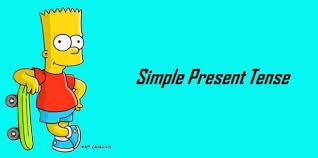There are three chief Tenses: The Present, the Past, the Future.
Broadly, verbs may refer to the time of an action/state or event.
The sentence formation follows:
| Singular Number | Plural Number | |
| 1st Person | I do | We do |
| 2nd Person | You do | You do |
| 3rd Person | He does | |
| She does | They do | |
| It does |
Note: When we use 3rd person singular, it must follow s/es after the verb.
For example:
Rohit does a lot many new things in his business.
She feels terribly sorry for her acts.
Uses of The Present Tense:
- To express habitual action: Rachel smokes. Cats meow. Cows eat grass. I wake up at 4 in the morning.
- It can be used, mainly with the verb say, when we ask about or quote from notices, books or recently received letters: What does that announcement say? ~ It says, ‘No more delays will be tolerated’.
What does that book say? ~ It says, ‘Trust but verify.’
“There are three gates to the self-destructive hell: lust, anger, and greed”, says Lord Krishna
- To express general truths: Barking dogs seldom bite. Earthquakes occur often. Rain gives water to life.
- It can be used in newspaper headlines: India win(s) by 6 wickets. Militants surrender.
- In exclamatory sentences beginning with here and there to denote what is actually happening in the present. In other words, we can call it a ‘Dramatic Narrative’. Such sentences can also be possible without using ‘here’ and ‘there’, particularly when describing the action of an opera, play, etc. and is generally used by radio commentators at ceremonies, public functions, sports events, etc.:
There you go!
Here comes your bus!
Here comes the great Achilles!
At play and also while telling stories: Samantha is asleep in her bed and she wakes up groggily. Suddenly the window opens and a masked man with a dagger enters to kill her.
- It is also used to introduce quotations: Chanakya says, “Books are as useful to a stupid person as a mirror to a blind person.”
- It is used in the conditional sentences: If you do not work hard, you will not succeed. If I happen to meet Roger, I will ask this question.
- It is used in time clauses: (a) when there is a routine idea:
As soon as he enters the room, his dog jumps on him for a hug.
She drops her child to school before she goes to work.
(b) when the main verb is in a future form:
It will get darker soon. Then we will go out for supper.
When it gets darker, we will go out for supper.
- It is used for a planned future action or series of actions, such as referring to a journey.
Alright, folks! We leave tomorrow morning at 6 and arrive in London 9. We have a layover of 2 hours at Heathrow Airport before we fly to Los Angeles.
The same sentence construction is used for the planned activities:
The exam commences next week
- We have many several involuntary actions/senses for which we do not use the verb form of the present progressive tense. The list of such verbs is the following:
Verbs of the senses: feel, hear, see, smell, notice, observe (= notice), taste, recognize
I am watching this place carefully, but don’t see anything unusual.’
Rita is listening to the IELTS tape, but she has put on the headphones so nobody else hears it
Verbs expressing emotions and feelings: admire (= respect), adore, appreciate (= value), care for (= like), desire, detest, dislike fear, hate, like loath, love, mind (= care) respect, value, want, wish, hope, refuse, prefer
I hate touristy places, but I am enjoying this place for some unexplained reasons.
I love eating burgers, but I don’t know why I am not loving it today.
Verbs of appearing: seem, look, appear
It seems acceptable so you are good to go.
She looks beautiful, but today she is looking stunningly a knockout girl.
Verbs of thinking: agree, appreciate (= understand), assume, believe, expect (= think), feel (= think), feel sure/certain, forget, know, mean, perceive, realize, recall, recognize, recollect, remember, see (= understand) see through someone (= penetrated his attempt to deceive) suppose, think (= have an opinion), trust (= believe/have confidence in), understand.
I don’t agree with you on this point. And I assume you have a long way to go yet.
I see through his devious plan and also feel certain that he won’t be successful in it.
Verbs of possession: own, possess, belong to, contain, consist of
- It is used for giving directions: First of all, you go straight and take the right turn when you reach the intersection.
- It is also used in ceremonial or formal conversation: The jury pronounces you innocent.
Note: There are some verbs that can also be used in the continuous forms with a different meaning, e.g. I smell diesel. But when you sniff or try to sniff at something/someone, you can use the continuous form as well.
Why are you smelling the cup? Is it stinking?
